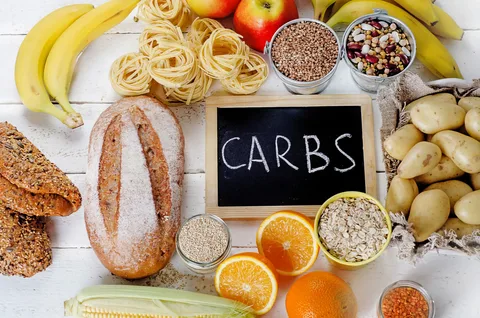Understanding Insulin Sensitivity
Insulin sensitivity refers to how efficiently your body’s cells respond to insulin’s signals to take up glucose from the bloodstream. When cells are sensitive to insulin, they readily absorb glucose, helping to maintain stable blood sugar levels. However, when cells become resistant to insulin’s effects, glucose remains elevated in the bloodstream, leading to a cascade of metabolic disturbances and increasing the risk of type 2 diabetes and other health conditions.
14 Natural Ways to Improve Insulin Sensitivity
Exercise Regularly
Physical activity is one of the most effective ways to improve insulin sensitivity. Both aerobic exercise (such as brisk walking, jogging, cycling) and resistance training (weight lifting, bodyweight exercises) can help increase muscle insulin sensitivity and glucose uptake. Aim for at least 150 minutes of moderate-intensity aerobic exercise or 75 minutes of vigorous-intensity aerobic exercise per week, along with two or more days of resistance training.
Maintain a Healthy Weight
Excess body fat, especially visceral fat around the abdomen, is strongly associated with insulin resistance. Losing weight, particularly through a combination of diet and exercise, can significantly improve insulin sensitivity. Focus on adopting a balanced diet rich in whole foods, such as fruits, vegetables, lean proteins, whole grains, and healthy fats, while reducing intake of processed foods, sugary beverages, and high-calorie snacks.
Eat a Balanced Diet
Certain dietary factors can influence insulin sensitivity. Aim to include a variety of nutrient-dense foods in your diet, emphasizing high-fiber carbohydrates (such as vegetables, fruits, legumes, and whole grains), lean proteins (such as poultry, fish, tofu, and legumes), and healthy fats (such as olive oil, avocados, nuts, and seeds). Limit consumption of refined carbohydrates, added sugars, and unhealthy fats to support optimal metabolic health.
Choose Low-Glycemic Foods
Foods with a low glycemic index (GI) produce smaller fluctuations in blood sugar levels and can help improve insulin sensitivity. Focus on choosing low-GI carbohydrates, such as whole grains, legumes, non-starchy vegetables, and most fruits, while minimizing consumption of high-GI foods like white bread, white rice, sugary snacks, and processed cereals.
Get Sufficient Sleep
Poor sleep quality and inadequate sleep duration have been linked to insulin resistance and an increased risk of type 2 diabetes. Aim for 7-9 hours of quality sleep per night to support optimal metabolic function and insulin sensitivity. Establishing a regular sleep schedule, creating a relaxing bedtime routine, and creating a comfortable sleep environment can help improve sleep quality.
Manage Stress
Chronic stress can elevate cortisol levels, which may impair insulin sensitivity and contribute to metabolic dysfunction. Practice stress-reducing techniques such as mindfulness meditation, deep breathing exercises, yoga, tai chi, or spending time in nature to promote relaxation and improve overall well-being.
Stay Hydrated
Drinking an adequate amount of water is essential for optimal metabolic function and insulin sensitivity. Aim to stay hydrated throughout the day by drinking water regularly and limiting consumption of sugary beverages, caffeinated drinks, and alcohol, which can disrupt fluid balance and affect insulin sensitivity.
Consume Omega-3 Fatty Acids
Omega-3 fatty acids found in fatty fish (such as salmon, mackerel, sardines), flaxseeds, chia seeds, walnuts, and hemp seeds have been shown to improve insulin sensitivity and reduce inflammation. Include sources of omega-3s in your diet regularly to support metabolic health and overall well-being.
Incorporate Apple Cider Vinegar
Apple cider vinegar may help improve insulin sensitivity and lower blood sugar levels, particularly when consumed with meals. Add a splash of apple cider vinegar to salad dressings, marinades, or beverages, or dilute it in water and drink it before meals to reap its potential benefits for metabolic health.
Drink Green Tea
Green tea contains compounds called catechins, which have been shown to improve insulin sensitivity and reduce the risk of type 2 diabetes. Enjoying a cup or two of green tea daily may help support metabolic health and promote better insulin sensitivity.
Include Cinnamon in Your Diet
Cinnamon has been studied for its potential benefits in improving insulin sensitivity and lowering blood sugar levels. Sprinkle cinnamon on oatmeal, yogurt, smoothies, or incorporate it into baked goods and savory dishes to add flavor and potential health benefits to your meals.
Practice Intermittent Fasting
Intermittent fasting, which involves cycling between periods of eating and fasting, has been shown to improve insulin sensitivity, promote weight loss, and support metabolic health. Experiment with different fasting protocols, such as the 16/8 method (fasting for 16 hours and eating within an 8-hour window) or alternate-day fasting, to find an approach that works for you.
Get Adequate Vitamin D
Vitamin D deficiency has been associated with insulin resistance and an increased risk of type 2 diabetes. Spend time outdoors in the sunlight, consume vitamin D-rich foods such as fatty fish, eggs, and fortified dairy products, or consider taking a vitamin D supplement to ensure adequate intake and support metabolic health.
Limit Alcohol Consumption
Excessive alcohol consumption can impair insulin sensitivity and disrupt metabolic function. Limit your intake of alcoholic beverages and consume them in moderation, if at all, to minimize the negative impact on insulin sensitivity and overall health.
FAQs About Improving Insulin Sensitivity
What are the symptoms of insulin resistance?
Symptoms of insulin resistance may include fatigue, increased hunger, frequent urination, excessive thirst, blurred vision, and slow wound healing. However, insulin resistance can develop gradually and may not always cause noticeable symptoms, especially in the early stages.
How can I test my insulin sensitivity?
Insulin sensitivity can be assessed through various methods, including fasting blood glucose and insulin levels, oral glucose tolerance tests, and HOMA-IR (Homeostatic Model Assessment of Insulin Resistance) calculations. Consult with a healthcare professional to determine the most appropriate tests for assessing your insulin sensitivity.
Can exercise alone improve insulin sensitivity?
Regular exercise can significantly improve insulin sensitivity, especially when combined with dietary modifications and other lifestyle changes. Both aerobic exercise and resistance training have been shown to enhance insulin sensitivity and support metabolic health.
How long does it take to improve insulin sensitivity?
The time it takes to improve insulin sensitivity can vary depending on individual factors such as age, baseline insulin sensitivity, diet, exercise habits, and overall health status. Consistently following a healthy lifestyle, including regular exercise, balanced nutrition, and stress management, can lead to improvements in insulin sensitivity over time.
Can insulin sensitivity be reversed?
Yes, insulin sensitivity can be improved and reversed through lifestyle modifications, including diet, exercise, weight loss, stress management, and adequate sleep. By adopting healthy habits and addressing underlying metabolic imbalances, individuals can enhance insulin sensitivity and reduce the risk of type 2 diabetes and other health conditions.
Are there any supplements that can improve insulin sensitivity?
Some dietary supplements, such as alpha-lipoic acid, berberine, chromium, magnesium, and resveratrol, have been studied for their potential benefits in improving insulin sensitivity and metabolic health. However, more research is needed to determine their effectiveness and safety for long-term use. Consult with a healthcare professional before taking any supplements to address insulin resistance or metabolic issues.
Can insulin sensitivity be improved in people with diabetes?
Yes, individuals with diabetes can still benefit from improving insulin sensitivity through lifestyle modifications, even if they require insulin or other medications to manage their condition. By optimizing diet, exercise, and other lifestyle factors, individuals with diabetes can enhance insulin sensitivity, improve blood sugar control, and reduce the need for medication over time.
Conclusion
Improving insulin sensitivity is essential for maintaining metabolic health and reducing the risk of type 2 diabetes and other chronic diseases. By incorporating these natural strategies into your lifestyle, such as regular exercise, balanced nutrition, stress management, and adequate sleep, you can enhance insulin sensitivity and support overall well-being. Remember that small changes can lead to significant improvements over time, so focus on making sustainable lifestyle changes that promote long-term health and vitality. If you have specific health concerns or medical conditions, consult with a healthcare professional or registered dietitian for personalized guidance and support on your journey to better metabolic health.
- Traptox Aka Trapezius Botox Treatment Near Laleham, Surrey - January 2, 2025
- Traptox Aka Trapezius Botox Treatment Near Sunbury On Thames, Surrey - January 2, 2025
- Infantilism Fetish: Role-Playing Regression And Comfort - January 2, 2025



